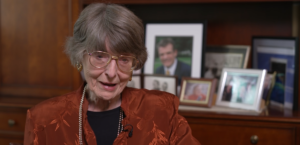UK primary schools are wasting play times by failing to have a plan for play

According to a brand-new report, ‘A Plan For Play’ – published today – facilitating children’s play is a ‘win-win’ in a post-pandemic climate, without the significant cost implication for the government. With mounting pressure on the Early Years provision, national not-for-profit organisation, the Children’s Alliance, has proposed a cost-effective and clear solution to the government that will benefit every single child in the country.
The overarching goal of the report? To prioritise play and creative time for children as a component of early educational framework, rather than seeing active play as an additional benefit of childhood.
Tamsin Brewis, Director of the Children’s Alliance, is a firm believer in the value of active play for children from a young age, “Play as a nourishing, necessary and joyful activity – enshrined by the United Nations – is the birth right of every child. It ‘levels up’ health and wellbeing life chances for children wherever they live and whatever their family income. During the pandemic, children and young people from less advantageous backgrounds in particular, paid the price for being cooped up and this inexpensive ‘early intervention’ measure could save burgeoning health and economic costs and tap into the potential of a new generation.”
The report, sponsored by Outdoor Play and Learning (OPAL) a not-for-profit organisation campaigning for a child’s right to play, calls for multiple commitments from the government, including for the Department for Education (DfE) to require and support all primary range schools to devise a school plan for play, based on proven best practice and play work principles. Furthermore, the Children’s Alliance calls for the government to provide ring-fenced funding of play enabling all UK local authorities to afford every child in the country the opportunity to play in a local, safe and high-quality playground.
Founder and Director of OPAL, Michael Follett, commended the report, “UK primary schools are wasting play times, staff time and school grounds’ valuable development opportunities by failing to have a plan for play. Our work in over 1,000 primary schools has demonstrated that a planned approach to play is highly effective at improving outcomes for children and is inclusive, fun and low cost. I cannot understand why any school would fail to plan for 20% of their delivery.”
The report also goes on to directly address one of the most prevalent issues faced by the pre-school generation – a reliance on independent screen time and the risk of so-called ‘digital stranger danger’. The need for an online safety bill is widely understood and now new research has shown that even spending as little as 76 extra minutes outside per day can halve the likelihood of short-sightedness – myopia – in childhood1.
In short, fair and equal access to play in every school, hospital, park, children’s centre and recreation space opens the closed circle of inequality and sets every child on a path to health, wellbeing and productivity.
For more information about the Children’s Alliance, visit https://childrensalliance.org.uk/
1 Global Myopia Awareness Coalition, 2023, Sight Sanctuary Guide.




